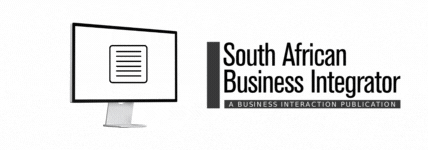Global supply chain anxiety eased in the third quarter of 2025, but South Africa’s vulnerabilities remain acute. The Chartered Institute for Procurement & Supply (CIPS) Southern Africa warns that ongoing fragility in logistics, rising cyber threats and tariff uncertainty continue to put the country at risk.
Global pressure drops, but local risk remains high
The latest CIPS Q3 2025 Pulse Survey shows that short-term supply chain concern fell from 4.57 to 4.36 out of seven. Twelve-month concern also declined slightly to 4.86. Despite this improvement, procurement leaders still list tariff instability, cyber threats and geopolitical pressure as significant medium-term challenges.
Paul Vos, Regional Managing Director of CIPS Southern Africa, says the local landscape demands ongoing vigilance. “Any disruption, whether cyber, tariff or logistics, has a disproportionate impact on jobs, inflation and growth. Resilience must be a core competency, not a quarterly priority.”
Logistics delays highlight continued domestic fragility
Fresh data from the South African Association of Freight Forwarders (SAAFF) shows the scale of the challenge. Severe weather, equipment failures and vacant berths caused major delays at key ports during the week of 26 October. Durban and Cape Town were most affected, experiencing extended downtime.
These issues arise as global trade policy escalates. The latest WTO-IMF Global Trade Policy Activity Index shows a sharp rise in both restrictive and liberalising measures since 2023, reflecting greater state intervention amid geopolitical tensions and environmental pressures.
Cyber-attacks surge as supply chains become targets
Digital risk has grown to match the scale of physical disruption. The CIPS survey reports that 29 percent of organisations have seen an increase in cyber-attacks on their supply chains over the past six months.
Vos says cyber-resilience must become a frontline priority. “Supply chains are now the entry point for cyber criminals. Procurement leaders must treat cyber risk with the same urgency as physical disruption.”
Findings from Check Point Software’s Q1 2025 Global Cyber Attack Report echo this concern. South Africa recorded 1,884 attacks per organisation per week, a 69 percent year-on-year increase.
Shift towards nearshoring and regional manufacturing
The survey shows that 59 percent of global procurement teams are exploring nearshoring or local production to manage tariff volatility. Vos says this is a major opportunity for the continent.
“Local manufacturing is not only about avoiding tariffs. It strengthens regional value chains under the African Continental Free Trade Area. It supports Africa’s own industrialisation goals.”
This shift aligns with efforts to deepen intra-African trade and reduce reliance on vulnerable global shipping routes.
Tariff uncertainty drives new sourcing strategies
While fewer organisations reported being directly affected by US tariffs in Q3, almost half are monitoring developments and adapting sourcing plans. Vos says this remains a genuine concern for Southern Africa. “With AGOA uncertainty and shifting global rules, procurement teams must design flexible and compliant supply strategies. Trade policy has become supply chain policy.”
Procurement shifts from crisis management to long-term redesign
CIPS economists note a movement towards building long-term resilience through supplier diversification, local capability development and stronger digital safeguards. Vos says this signals a maturing approach.
“South Africa’s supply chains are being re-engineered for resilience. This is how we move from surviving volatility to thriving through it.”



